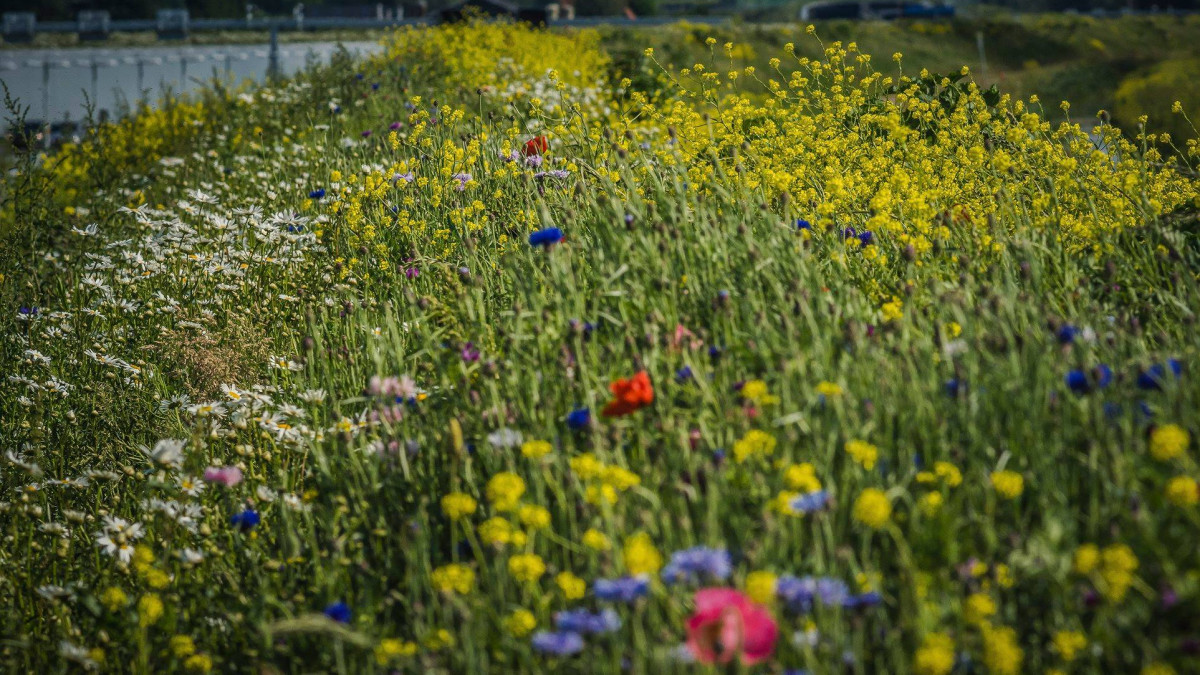
- Inspiring People -
- 2mins -
- 1,504 views
This Dutch 60 miles long Honey Highway paves the way for a beeautiful paradise!
Miles and miles of unused roadside that is very suitable to help the bees; it’s not only very needed, it also looks nice and flowery!
To bee or not to bee
Honey Highway is an initiative to transform roadsides into flowery patches by sowing plants and flowers that are favourable to bees.
As more people choose either grass or tiles in their backyards, and farmland becomes increasingly less versatile, the bee (and other insects) is losing liveable terrain. This busy little helper needs an assortment of different flowers and plants in order to thrive, feed and spread pollen. The survival of the bee is at risk and with them, a very large part of the earth’s ecosystem and our food, to name the last.
Honey Highway aims to create more bee-friendly places by sowing the right seeds in as many places as possible. In the video below, the initiator of Honey Highway explains how and why she started this project.
What the bee means to us
Bees make the honey, that’s what we learned in school. However, bees provide us with so much more than just honey. But what exactly do we owe to the bee. Or, rather, what all would we lose when we lose the bee?
Bees and other insects are crucial to the world food production; they pollinate about three quarters of all crops!
With the help of these pollinaters, over one third of all crops we eat on a weekly basis, would seize to exist; Broccoli, asparagus, cantaloupes, cucumbers, pumpkin, blueberries, watermelon, almonds, apples, cranberries and cherries would all vanish from the earth.
By pollinating flowers, bees assure that the flora keeps growing and thriving and creates an attractive environment which attracts other animals such as insects and birds.
So bees are among the most important insects to humans and the environment. That is why it’s important to help save them!

blessed bee the roadsides
The roadsides of the national roads, train tracks and dikes all get sown with Honey Highway flower seeds which are tailored to the type of ground and circumstances.
The roadside is just the right type of place to sow flower seeds, This is because, besides the nature reserves, the ground of the road side is among the only places that isn’t chemically treated and it’s thin soil. The rest of the Netherlands has proteïne rich ryegrass or the ground is treated with (chemical) fertiliser.
The Honey Highway project started in 2016 and so far, over 90 kilometers of Dutch roadside has been transformed into Honey Highway. On their website you can read which parts of the Netherlands have been transformed into a bee paradise.

